1. Motorola Mobility

Price: $12.5 billion
Announced: August 2011
FTC Approval: TBD
The crown jewel of Google's acquisitions -- but for its patents, not its "Hello Moto" ads. This monster deal will convert Google from smartphone OS provider to smartphone maker, which may make some of its other partners nervous. Companies like HTC and Samsung, however, have expressed satisfaction in the deal for its investment in the protection of Android from legal attacks by rivals such as Apple and Research in Motion.
The key is Motorola's patent treasure trove of 17,000 patents and 7,500 awaiting approval. Google's struggle to protect itself is not new, and after its failure to buy Nortel's patent cache earlier this year, this move represents a stunning counterattack. In its note following the announcement today, Nomura wrote to investors that it expected the patent crisis for Google to now subside. The main concern -- besides the big-money price tag? CitiGroup's note warned that, given past regulatory delays, the deal may not close before 2012.
2. DoubleClick

Price: $3.1 billion
Announced: April 2007
FTC Approval: December 2007 (March 2008 in Europe)
Of the big three, DoubleClick will be the most obscure name for the layman reader. But it shouldn't be, given the huge role DoubleClick's display ad business plays for Google. Regulators knew that, which led to protracted investigation, especially in Europe. Once given the green light, Google made DoubleClick its core business for display ads, what analysts had considered a weakness for the company. Reports from the time noted the steep price tag but applauded Google for taking steps to catch up with Yahoo! and Microsoft in such ads. DoubleClick was the first, and biggest, of Google's major advertising capability buys -- what CitiGroup called Google's "very expensive but very significant strategic thrust."
3. YouTube
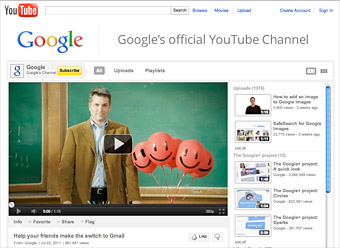
Price: $1.65 billion
Announced: October 2006
FTC Approval: November 2006
The video giant wed the search giant in late 2006 to mostly positive feedback. Analysts noted the move, though expensive, gave Google "a leader in two of the big three, email, search, and video," as Goldman Sachs wrote in a report from the time of the announcement. The biggest concern experts had at the time of the sale? How Google would address copyright concerns with the user-driven video site. Google has managed to deal with such copyright issues successfully, while keeping YouTube relevant and looking forward. Corollary purchases such as On2 will allow Google to continue to innovate -- and make more money -- from the site.
4. AdMob
Price: $750 million
Announced: November 2009
FTC Approval: May 2010
The purchase of AdMob is consistent with the strategy already exhibited by this list: Google aggressively ramping up its advertising inventory. Along with Invite Media and AdMeld, this plunged Google into mobile advertising. Mobile apps are an increasingly important venue for ads -- just ask anyone who plays Hanging With Friends.
Google announced in May that in its first full year with the company, AdMob grew by over 3.5 times, getting over 2.7 billion daily ad requests. The company plans to use the AdMob network in further integration with DoubleClick's ad tools to ultimately operate on a single platform across all devices.
5. ITA Software

Price: $700 million
Announced: July 2010
FTC Approval: April 2011
This Cambridge, MA-based travel search company made the software for travel search sites and airlines. Google's purchase troubled some in the industry, who feared for the competitive viability of clients such as Kayak and TripAdvisor. To meet concerns during a lengthy review by the Federal Trade Commission, Google first promised to honor all ITA contracts. Shortly before approval, it went a step further and "formally committed to let ITA's customers extend their contracts into 2016," senior VP Jeff Huber wrote on Google's blog.
Now that competition has been presumably safeguarded for the next five years, Google can launch into its plans for ITA's technology: new flight search capability. Huber's post imagined a day when a user can simply type "flights to somewhere sunny for under $500 in May" and immediately see flight times, fares, and ticket vendors within Google's search.
6. Postini
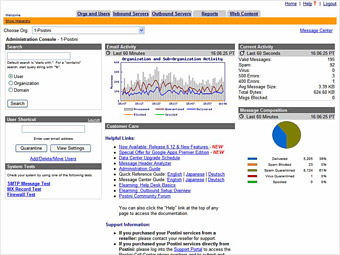
Price: $625 million
Announced: July 2007
FTC Approval: August 2007
Postini was one of the first partners with Google Apps and is now a core part of that area of Google's business. According to Google's Postini site, Google Postini provides security and archiving services to over 26 million users, and is a core part of its message security and discovery capability.
Four years since its purchase, Google decided this July to use Postini email security features in Gmail, which analysts touted as a major step in bolstering Google Apps security for enterprise. Don't be surprised to see more Postini integration into Google Apps and Gmail in the future.
7. AdMeld
Price: $400 million
Announced: June 2011
FTC Approval: Under review
If this purchase goes through, Google will have its end-to-end solution in online display advertising. In a note from shortly after the purchase announcement, Credit Suisse demonstrated that the purchase of AdMeld fit as the final piece in the puzzle: an ad would start with the advertiser and go through an ad agency to a demand side platform -- Google's June acquisition Invite Media. Then the ad would go to an ad exchange -- covered by Google's acquisition later in this list, DoubleClick. Next, on to its ad network and then to a supply side platform -- AdMeld. From AdMeld, the ad would reach users via a publisher such as yet another acquisition featured here, YouTube. For those keeping score, that kind of ad system would make use of four relatively recent purchases, three of which make Google's all-time top 10.
8. Slide
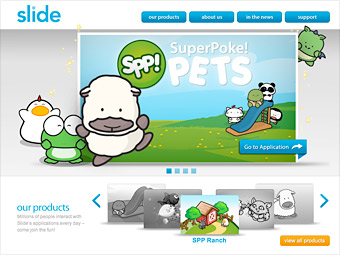
Price: $182 million or $228 million
Announced: August 2010
FTC Approval: No approval required
The social gaming site slots in at number eight whether you go by the originally reported value of $182 million or the later, higher reported cost. Slide.com relied upon the SuperPoke! and SuperPoke! Pets Facebook applications for its business. If digitally "throwing" sheep at your Facebook friends is not your thing, Slide has been busy since joining Google. The company offers VideoInbox, a Facebook app that serves up "the five best videos every day."
Slide has come out with other apps since its purchase by Google, but interestingly not for the Android operating system. Instead, creations such as Disco, a group messaging app, are currently offered only on Apple's iOS. But given Google's recent activity, don't be shocked if Slide's apps start to come pre-loaded on Motorola models.
9. WideVine Tech
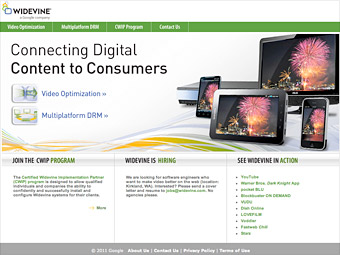
Price: $150 million
Announced: December 2010
FTC Approval: No approval required
WideVine was a video optimizer and one of the last major independent digital rights managers. Fortune's own Dan Primack reported in February that the company had seriously overpaid given an internal valuation of between $30 or $40 million, according to a WideVine investor. (Google said it could not confirm numbers on acquisitions for which it has not publicly released details.)
Whatever the price, industry experts saw the purchase of WideVine as part of the company's continued investment in Google TV since the DRM tech acquired through WideVine could assuage future licensing concerns over the service. As an anti-piracy stalwart, WideVine's DRM operations also open up the potential for premium (read: paid) content on YouTube. As with On2, one acquisition fed directly into another.
10.On2 Technologies
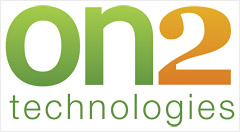
Price: $133 million
Announced: August 2009
FTC Approval: January 2010
On2 Technologies made Theora and VP8, high performance video codecs for online streaming. After the purchase, the Free Software Foundation immediately called for Google to open-source VP8. It had used Adobe Flash for the videos on another notable acquisition -- YouTube.
On2's purchase has proven crucial to Google's video efforts. Google did open-source VP8 that May as a crucial piece of its video format, WebM. YouTube is switching over to WebM for both new videos and its existing catalog, while Google's rival Microsoft has allowed its own new acquisition, Skype, to switch to WebM for all its video calls.
Google's 10 biggest acquisitions so far
Thursday, August 18, 2011 |
Labels:
Google
Subscribe to:
Post Comments (Atom)








0 comments:
Post a Comment